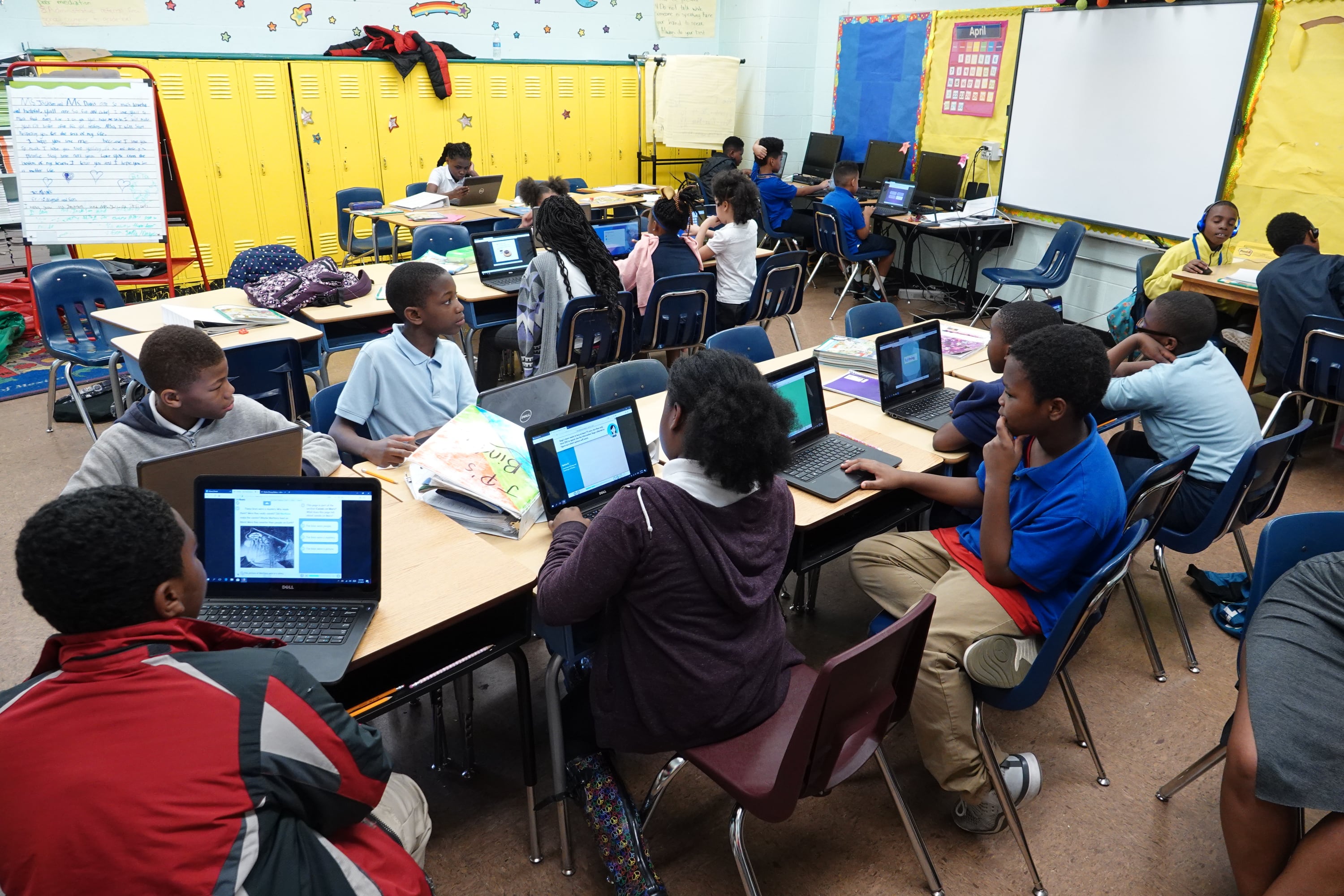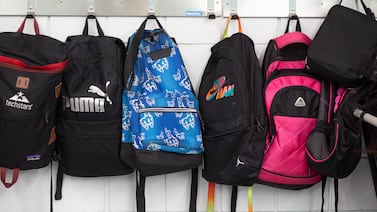More than three-fourths of Tennessee educators surveyed this spring identified reliable devices and internet access as their biggest needs to continue teaching students during extended closures of school buildings.
And when it comes to their top concerns for students during such times, technology, meals, and counseling topped the list.
About 40% of the state’s teachers and 44% of its administrators responded to a survey in April after schools were shuttered statewide in mid-March due to the coronavirus. The survey was conducted by the Tennessee Education Research Alliance at Vanderbilt University in partnership with the state education department.
The results, released on Tuesday, show an overwhelming consensus from educators that students need greater digital access to continue learning during disruptions such as COVID-19.
“The findings mirror what we were hearing anecdotally all spring — that technological barriers prevented equal access to remote learning across Tennessee,” said Susan K. Patrick, one of the study’s authors.
More specifically, teachers in rural counties without a high-speed broadband infrastructure were more likely to identify internet access as the most acute need, while those in schools serving more low-income students were more likely to ask for reliable devices. Educators at elementary schools also were more likely to identify reliable devices as an important need.
The findings are consistent with what state officials have heard from district leaders as they set priorities for spending federal coronavirus relief funds. The Department of Education has earmarked half of its $26 million state-level allocation to disburse technology grants to districts. But significantly more coordination and government investments would be needed to bridge the state’s digital divide for students.
If similar disruptions continue next school year, educators who were surveyed want more clarity around expectations for remote learning — for instance, how they should take attendance and grade their students.
“Some expressed frustration that only a subset of students were attending virtual classes or completing remote work, and attributed this lack of engagement to unclear or inconsistent expectations about grading and introducing new material,” the research brief said.
The survey asked teachers to identify the ways they were supporting student learning remotely in the spring. About 96% reported planning at least one engagement, while 67% said they regularly emailed resources to students and parents and another 29% reported sending home paper materials. Some 23% said they engaged regularly with students in virtual classes, with 11% provided tutoring.
“Our findings show that not all students were getting equal access to remote learning,” said Patrick. “Not surprisingly, teachers in smaller suburban districts that tend to have more advantaged students engaged more frequently on all types of remote learning.”
The Tennessee Educator Survey has been conducted across the state’s public schools since 2012 on a variety of issues and was in process when schools were suddenly closed in March. The development prompted the research alliance and the education department to redeploy the survey in early April with additional questions related to COVID-19.
“With our educators dealing with unprecedented challenges, we saw this as an opportunity to ask them what they’re experiencing and what they’re concerned about” said Erin O’Hara, executive director of the alliance. “It’s important to let educators voice their opinions on issues related to remote learning — what worked, and what didn’t — especially if we may have to be in and out of school or in blended learning environments in the fall.”
Results for survey questions unrelated to the coronavirus will be released this summer.








